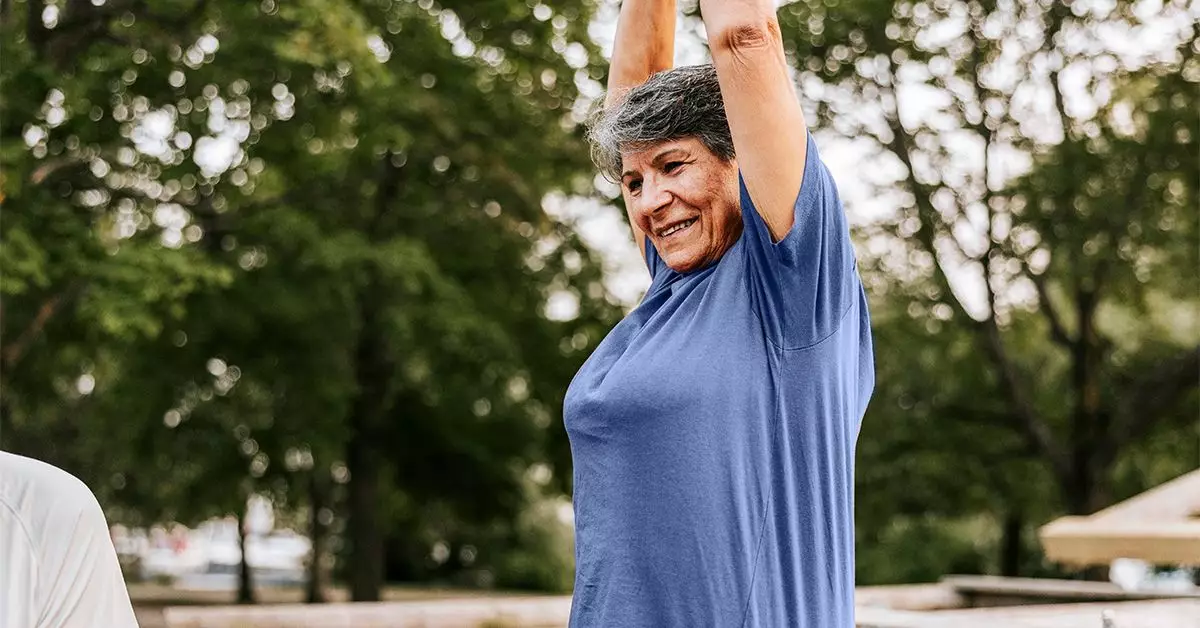Mild cognitive impairment (MCI) is increasingly recognized as a precursor to more severe forms of dementia, including Alzheimer’s disease. It manifests as subtle memory issues that may not alarm those around the individual but can significantly affect their daily life. This nagging concern has prompted researchers to investigate potential lifestyle modifications that could stave off the decline associated with MCI. Physical exercise has come to the forefront as a pivotal factor that is gaining traction in the domain of cognitive health.
Research Insights: Exercise and Cognitive Function
Recent studies have illuminated the protective benefits of both low and moderate-high intensity exercise on cognitive function. Engaging in regular physical activity—whether it’s brisk walking or intensive aerobics—appears to play a crucial role in reducing cognitive decline among older adults suffering from MCI. Researchers, including Dr. Laura Baker, highlight that athletes aren’t the only individuals who benefit from exercise—this revelation is vital for those who may be less inclined to adopt a rigorous fitness regime.
In the pioneering EXERT study, participants were divided into groups either engaging in moderate-high aerobic exercises or partaking in low-intensity routines focusing on stretching and flexibility. The common thread between both groups? A noticeable stability in cognitive function over a span of 12 months. These results underscore a profound truth: regardless of the intensity of exercise, the simple act of moving is invaluable for brain health.
Brain Volume and the Role of the Prefrontal Cortex
An exciting finding from the research indicates that participants in both exercise categories experienced less brain volume loss, particularly in the prefrontal cortex—a brain region critical for decision-making, multi-tasking, and organization. This highlights the implications of physical activity not just for physical health but for overall brain machinery. Aladdin Shadyab, a prominent researcher in the field, elaborates on this connection by emphasizing how regular exercise might halt cell loss, preserving the functional capabilities of individuals susceptible to cognitive decline.
As the human brain ages, the inevitable loss of neurons influences total brain volume, but observational studies have revealed that this loss does not occur uniformly among the population. Engaging in regular exercise can assuage some of the faster rates of decline that accompany memory impairments, potentially leading to extended periods of cognitive richness.
Cognitive Health: A Lifestyle Approach
The implications of the findings extend beyond mere survival; maintaining cognitive function can bolster one’s overall quality of life as they age. Dr. Lycia Neumann from the Alzheimer’s Association suggests that exercise is one of several pivotal lifestyle adjustments that could make a significant difference. This frames physical activity not as an isolated solution but rather as a component of a holistic strategy that includes a nutritious diet and social interaction.
While the evidence continues to mount in favor of exercise as a preventive avenue against cognitive deterioration, there remains a gap in the understanding of a tailored approach for individuals, particularly those at genetic risk for conditions like Alzheimer’s. Universal guidelines, such as the Alzheimer’s Association’s “10 Healthy Habits for Your Brain,” serve as a foundational step, yet each individual may require further personalized strategies for optimal brain health.
Constructing a Proactive Exercise Strategy
Healthcare professionals are increasingly advocating for exercise as a crucial pillar in safeguarding cognitive function. Dr. Clifford Segil, a neurologist, emphasizes the importance of daily movement. In his experience, encouraging patients to engage in light home-based exercises is simple yet impactful. He highlights that consistent activity enhances blood circulation, which is integral to delivering oxygen and nutrients to the brain, potentially reducing risks associated with vascular dementia.
Additionally, Dr. Segil recommends combining physical exercise with intellectual engagement—advocating for lifelong learning as a dual strategy to combat cognitive decline. Such recommendations provoke thought: how can communities better support older adults to embrace not only physical activity but also continuous education as part of their routine?
The Path Forward: A Call for Ongoing Research and Support
As the population ages and the prevalence of cognitive impairments rises, societal awareness and scientific inquiry must align to address this growing challenge actively. The implications of studies like EXERT lend hope but also signify that the journey toward understanding the intricate relationship between exercise and cognitive health is far from over.
By fostering a culture that prioritizes movement, mindfulness, and education, we may not only delay the onset of cognitive decline but enrich the golden years of countless individuals. The dance between physical exertion and mental acuity is just beginning to reveal its secrets, and with each study, we inch closer to crafting a robust framework for lifelong cognitive vitality.


Leave a Reply